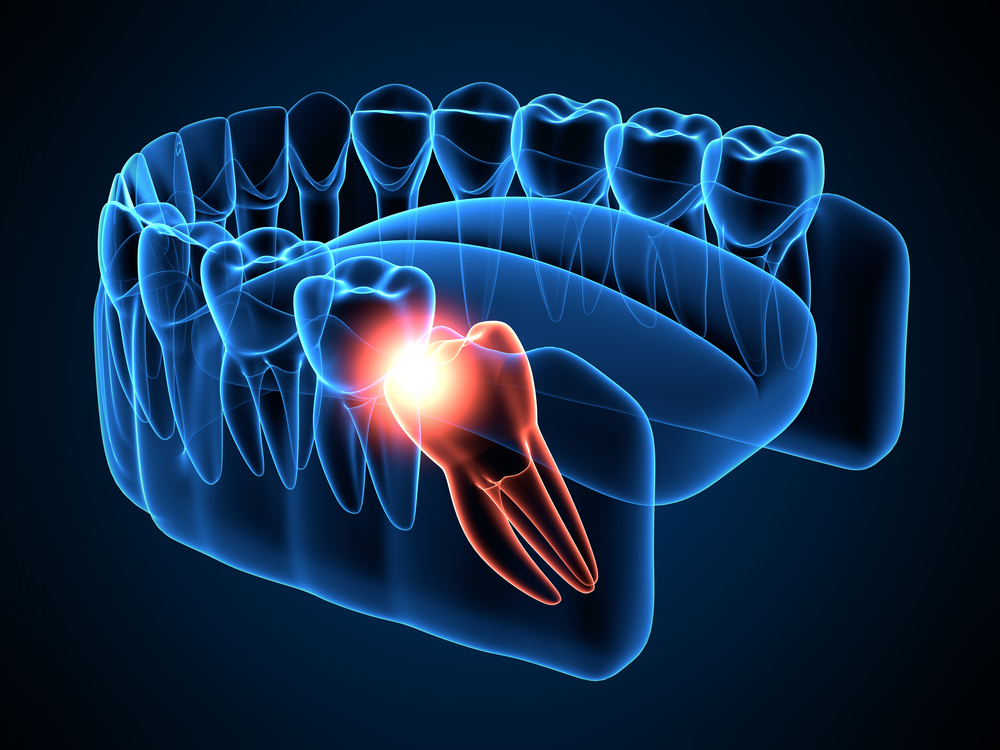
Impacted wisdom teeth are quite common, but they can lead to complications if not addressed. While they often remain hidden within the gum and cause no apparent issues, in other instances, they can lead to oral problems. Understanding their potential implications and how they affect your oral health is essential for maintaining your smile.
Signs and Symptoms of Impacted Wisdom Teeth
Although some individuals with impacted wisdom teeth experience no symptoms, it's not always the case. Here are some signs and symptoms to watch out for.
The most common symptom is pain at the back of your mouth, behind your molars. This discomfort can extend to the adjacent teeth, or it might radiate to the ear on that side. Another sign could be red, swollen, or bleeding gums around the area where a wisdom tooth might be coming in. You might also experience difficulty opening your mouth or swallowing, along with a persistent bad taste in your mouth or bad breath.
In some cases, you might notice a change in your bite or the alignment of your teeth. This could be a result of the impacted wisdom tooth pushing against your other teeth. Persistent discomfort or changes in your oral health should always be evaluated by a dental professional to determine their cause and appropriate treatment.
How Impacted Wisdom Teeth Affect Your Smile
Impacted wisdom teeth can negatively affect your smile in several ways. Firstly, impacted wisdom teeth can cause overcrowding. The pressure from the impacted tooth can push the neighboring teeth, causing them to shift position. This displacement can lead to misalignment or crowding of your teeth, which can significantly affect your smile.
Secondly, impacted wisdom teeth can lead to oral health issues which indirectly affect your smile. They can cause cysts or tumors in the jawbone, leading to damage to surrounding teeth.
Additionally, they can contribute to gum disease and tooth decay, primarily if they haven't fully erupted. Partially erupted wisdom teeth are hard to clean, making them a breeding ground for bacteria, which can lead to cavities, bad breath, and even gum disease.
Treatment Options for Impacted Wisdom Teeth
The treatment for impacted wisdom teeth depends on the specific circumstances and severity of the case. However, there are two primary treatment options: monitoring and surgery.
In some cases, if the impacted wisdom teeth are not causing any problems and are unlikely to cause future issues, your dentist might suggest a "wait and see" approach. Regular check-ups will be necessary to monitor the situation and ensure no complications arise.
In other cases, surgery may be required. Wisdom teeth extraction is a common procedure performed under local or general anesthesia. The complexity of the extraction depends on the position and development of the teeth. After the procedure, recovery generally takes a few days to a week, with specific guidance on diet and oral care to ensure optimal healing.
Conclusion
Impacted wisdom teeth can significantly affect your smile and overall oral health. While they may not always present symptoms, it's essential to have regular dental check-ups to monitor their status and catch potential issues early.
To learn more on how impacted wisdom teeth affect your smile, visit Le Smile Aesthetic & Comprehensive Dentistry in our Falls Church, Virginia, office. Call (703) 534-6226 to schedule an appointment today.






